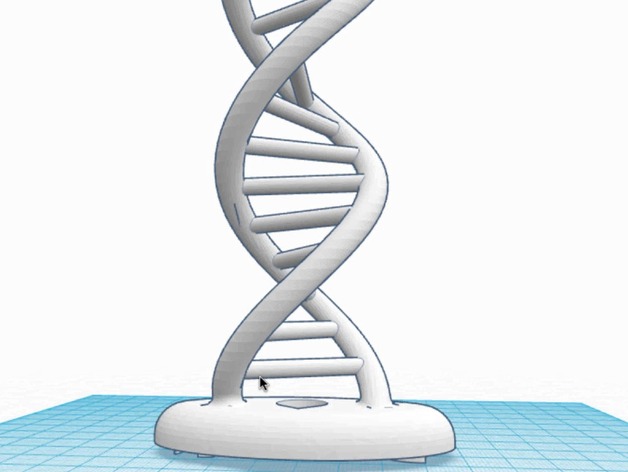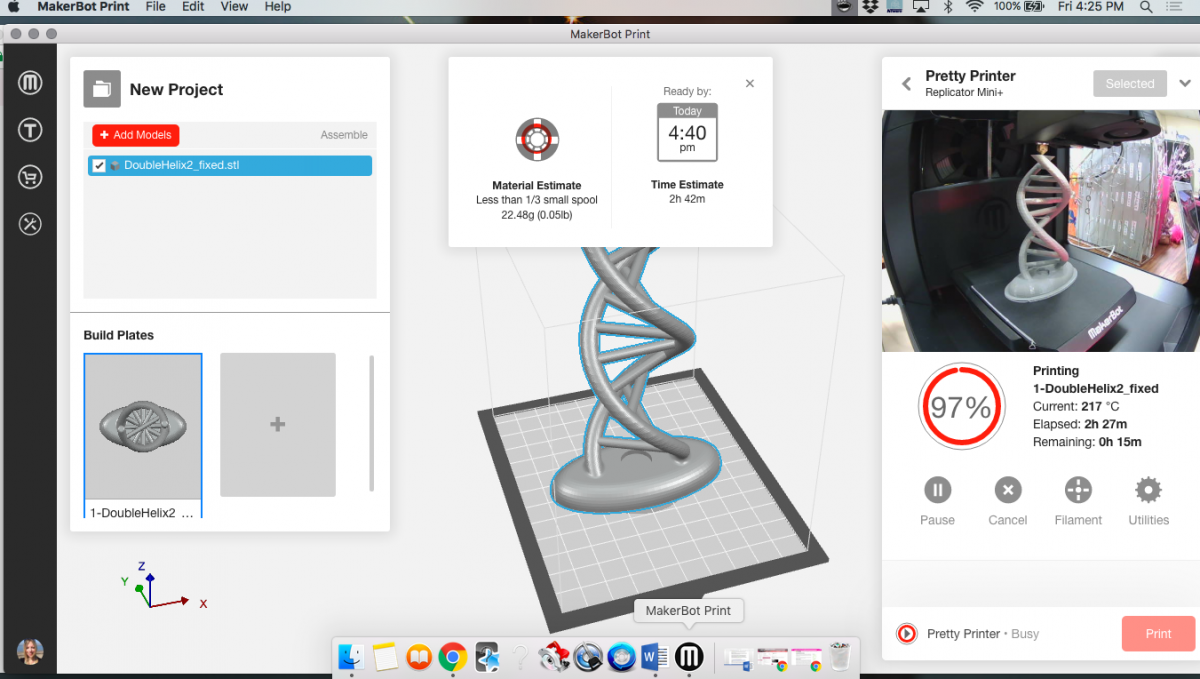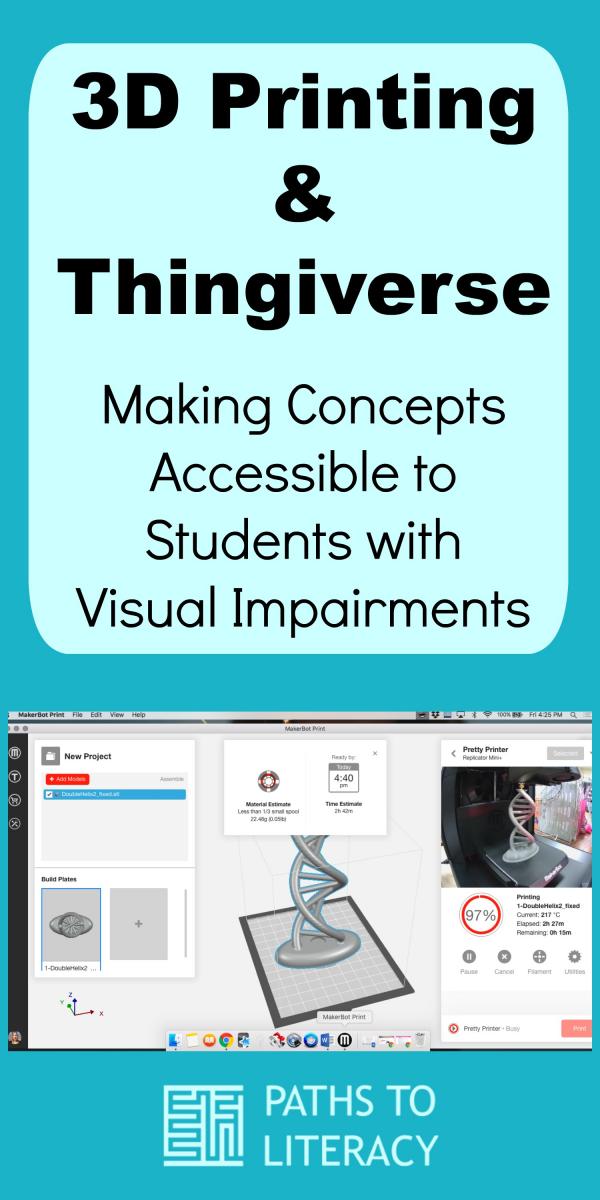
What I Used Today: 3D Printer & Thingiverse
A TVI shares tips on using 3D printing and Thingiverse to represent concepts in an accessible format for students who are blind or visually impaired.
While 3D Printing still requires both trial & error and patience, it remains an intriguing emergent way to represent concepts to students with visual impairments. The screenshot below demonstrates the use of a 3D Printer (a MakerBot Replicator Mini+, in this case) to create a model of the DNA double helix concept for biology class for a 9th grade braille user. The file had already been created and was available for free on the Thingiverse website at https://www.thingiverse.com/

Many school districts and public libraries have 3D printers, which is a great way to trial the experience before seeking grants or other funding to purchase one for a department. Read here to find out more about 2018 reviews for different printers, and the links below to find out more about 3D printing specifically for people with visual impairments.

This post was originally published on Our Little Corner of the World.
